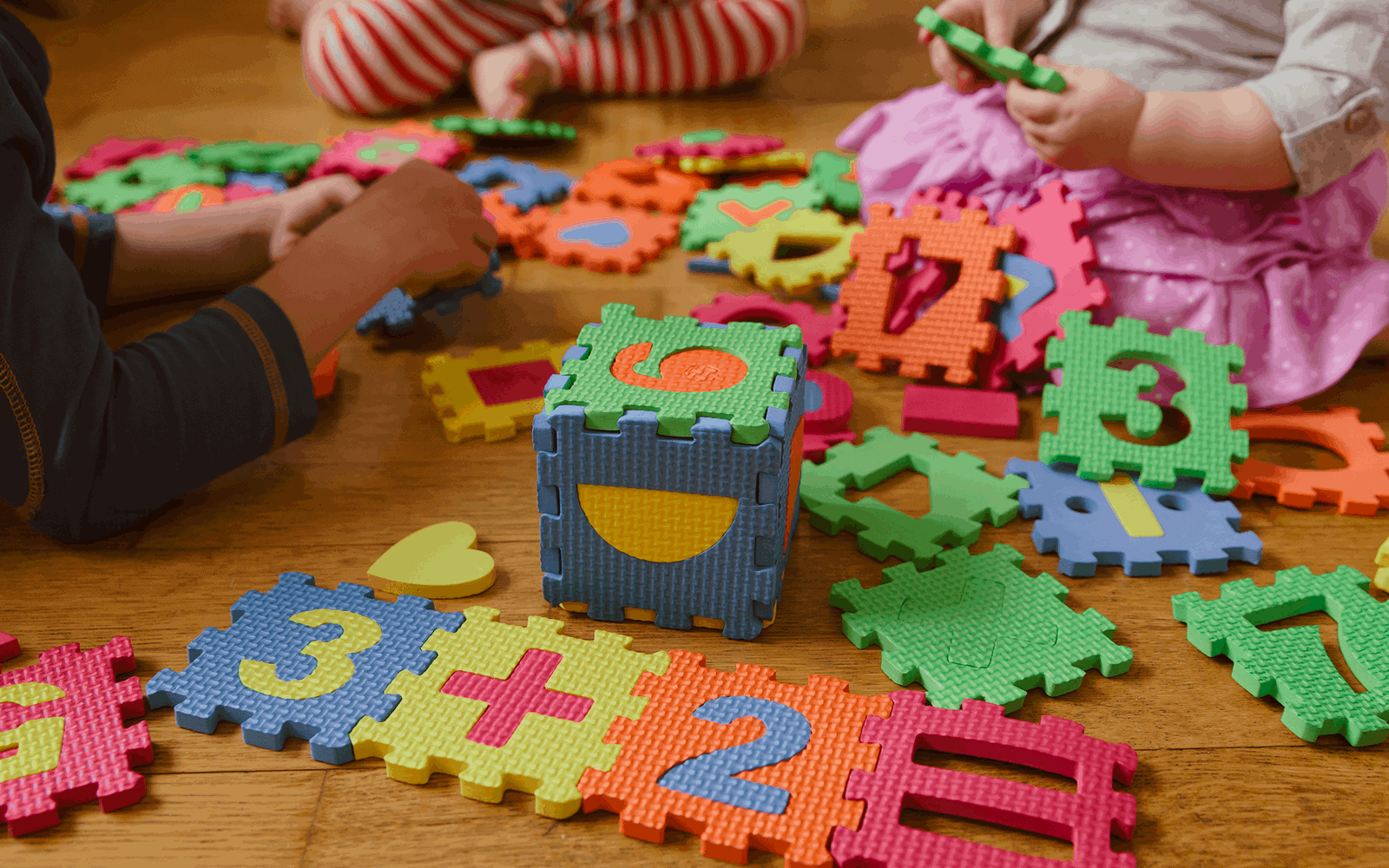“One… two… three…” you say as you count your baby’s toys for them. Even though your baby can’t solve equations, let alone speak, they are building early math and language skills with each number they hear.
And you don’t need to stop at numbers — there are many early math concepts that you can introduce to your young child, simply through language, play and reading books.


